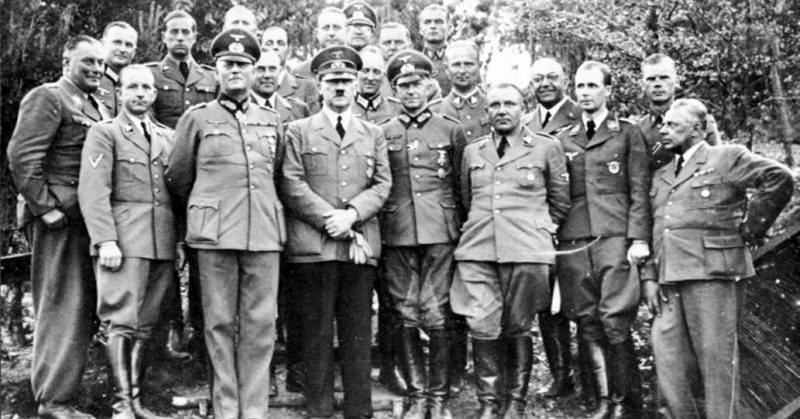Deep within Brazil’s Amazon rain forest, there’s a Nazi grave flanked by a towering cross with a swastika in a cemetery close to the isolated outpost of Laranjal do Jari. Inscribed on the cross in German is the name of Joseph Greiner who died there of fever on January 2, 1936 ‘in the service of German research.’
So what is it doing there? It is the sole reminder of a little-known facet of history when Germany sought to found a colony there by bringing a swath of the Amazon River Basin into the Third Reich.
Before hostilities actually broke out, marking the beginning of the Second World War, Hitler and the Nazi government made a number of attempts to establish bases and colonies in several strange locations around the world. Some of these have come to form the basis for the strange myths and urban legends that surround the German authorities during this period. From the jungles of South America to frozen wastelands of Antarctica, the idea of secret Nazi outposts in secluded regions of the planet still captures the imaginations of the public today.
Some of these stories and myths have been thoroughly debunked, and even in the case of the most plausible ones, the truth has always turned out to be slightly exaggerated. The mysterious German exploration to the far north, for example, turned out to be motivated solely by a hope to procure more whale oil. However, in the case of the South American expedition, there is actually a lot more to it.
From 1935 to 1937, a team of Nazi explorers were in the region under the leadership of Otto Schulz-Kampfhenkel, a zoologist, documentary filmmaker, and member of Hitler’s SS. They chopped their way through the jungle around Brazil’s border with neighboring French Guiana. While here they collected indigenous jewelry and animal skulls, while studying the topography along the 491-mile-long Jari River, an Amazon tributary.
The exploration began with the customary scientific appearances, explained Jens Glusing, a longtime correspondent for Der Spiegel, the German-language news outlet. He created a book explaining the Guyana Project. When the war began, Schulz-Kampfhenkel seized this opportunity for Nazi colonial enlargement.
He presented his plans to Heinrich Himmler, the head of the SS and the Gestapo, in 1940. The scheme was a way to curb the influence of the United States by taking control of French Guiana and the neighboring British and Dutch colonies. Although open war would not break out for several years to come, it was clear that a conflict between the various powerful nations in Europe and beyond was brewing.
Even if Germany did not initially launch an assault against the United States, a war on the continent would inevitably involve a battle with the Britain and France. This, in turn, could see American troops joining the war on their side – something Germany hoped to avoid if at all possible. After all, that was exactly what had happened less than two decades before, during the final years of the First World War.
It made sense, therefore, to take precautionary steps against this potential enemy. However, that dream faded, and it might have been the expedition itself that doomed the venture.
Matters didn’t go well from the start. The expedition had a Heinkel 72 Seekadett seaplane, an example of Nazi industrial prowess – but it capsized after striking driftwood just a few weeks after the expedition started, National Post reported.
From then on they were compelled to rely on native tribes for their survival and finding their way through the jungle. Malaria and other ailments felled them. Schulz-Kampfhenkel, the expedition’s foreman, developed diphtheria and an unknown fever took Grenier’s life.
The mission was abandoned, and today only Grenier’s three-meter-high monument remains as the testament to their failed endeavors.
